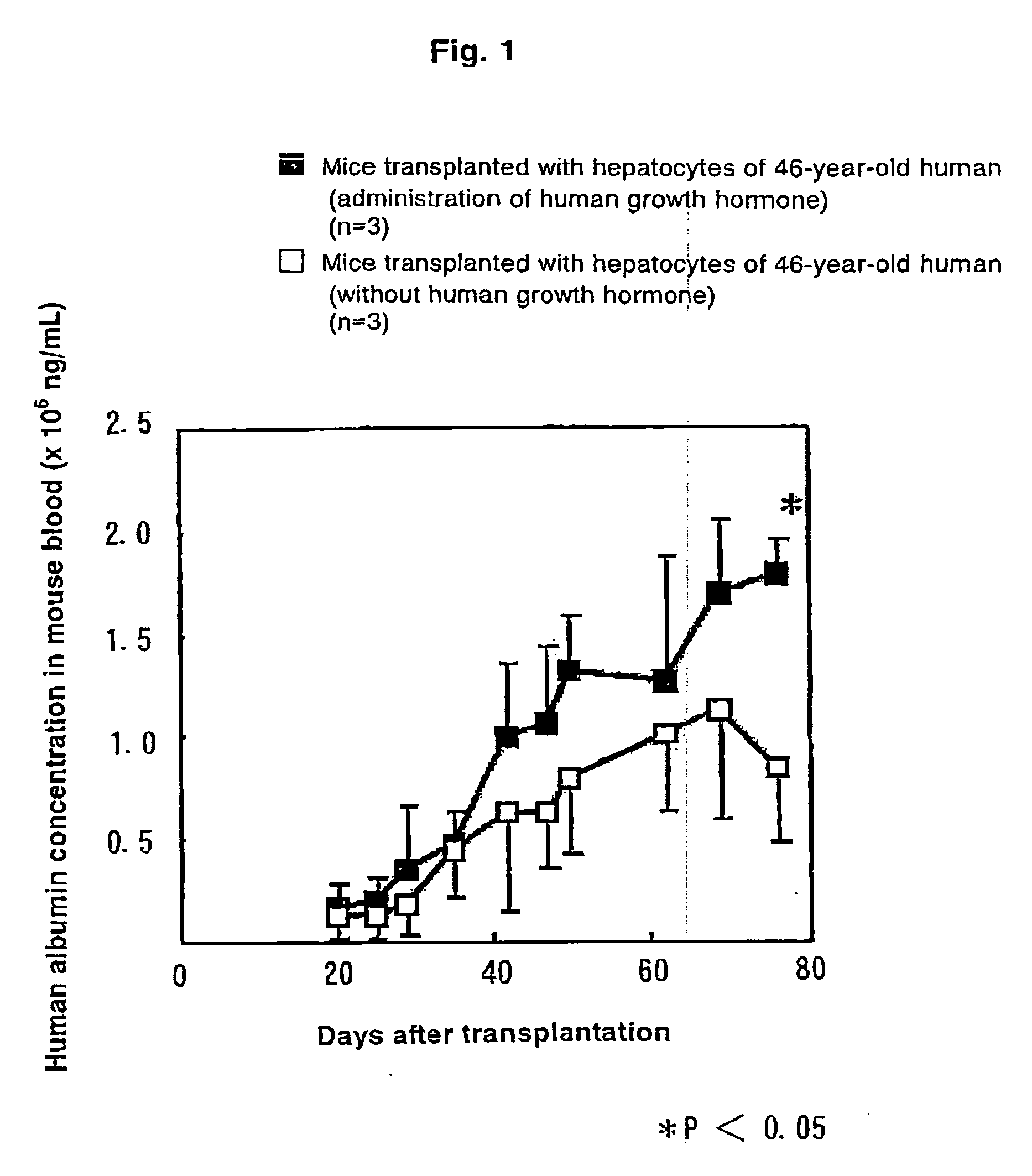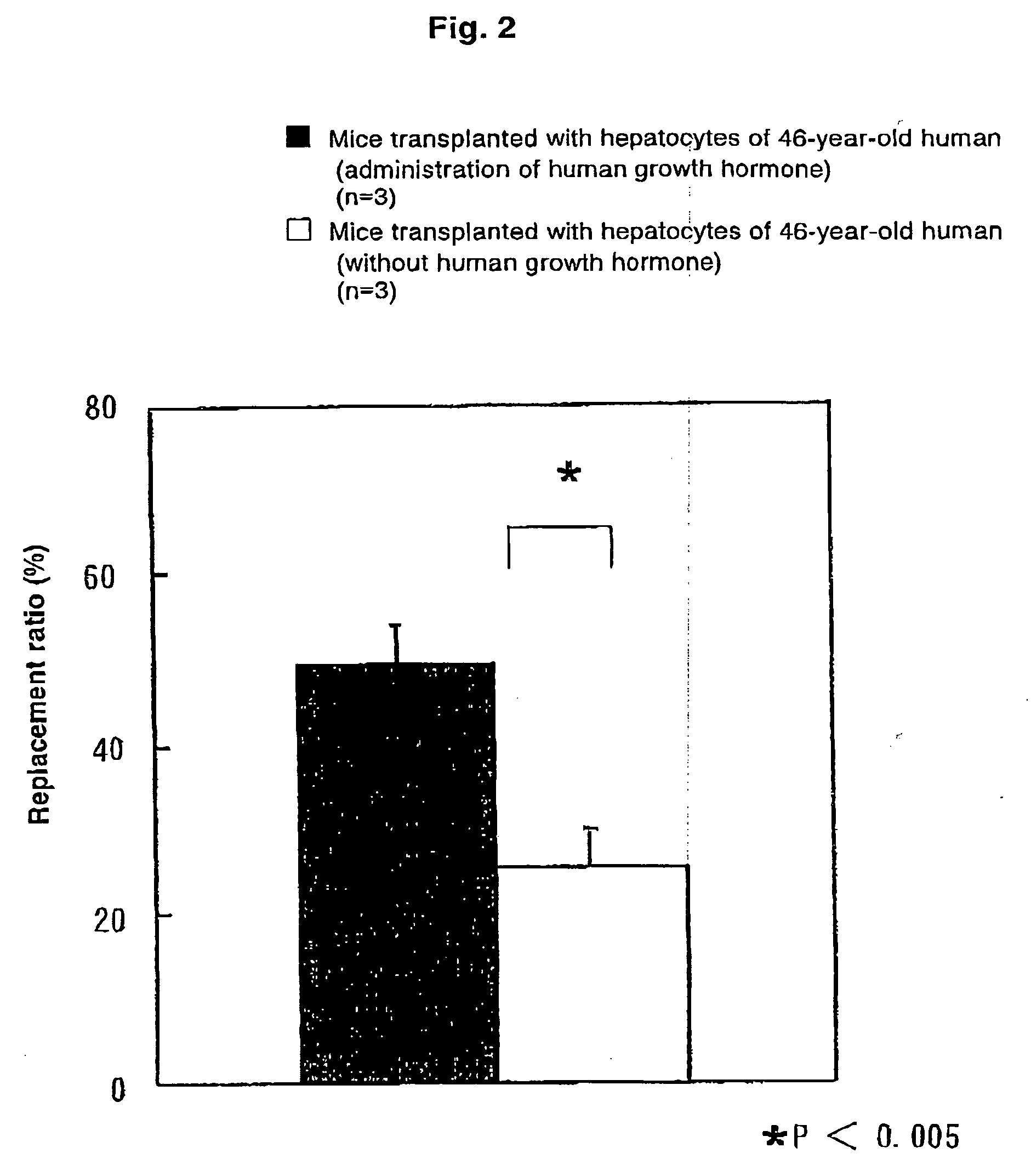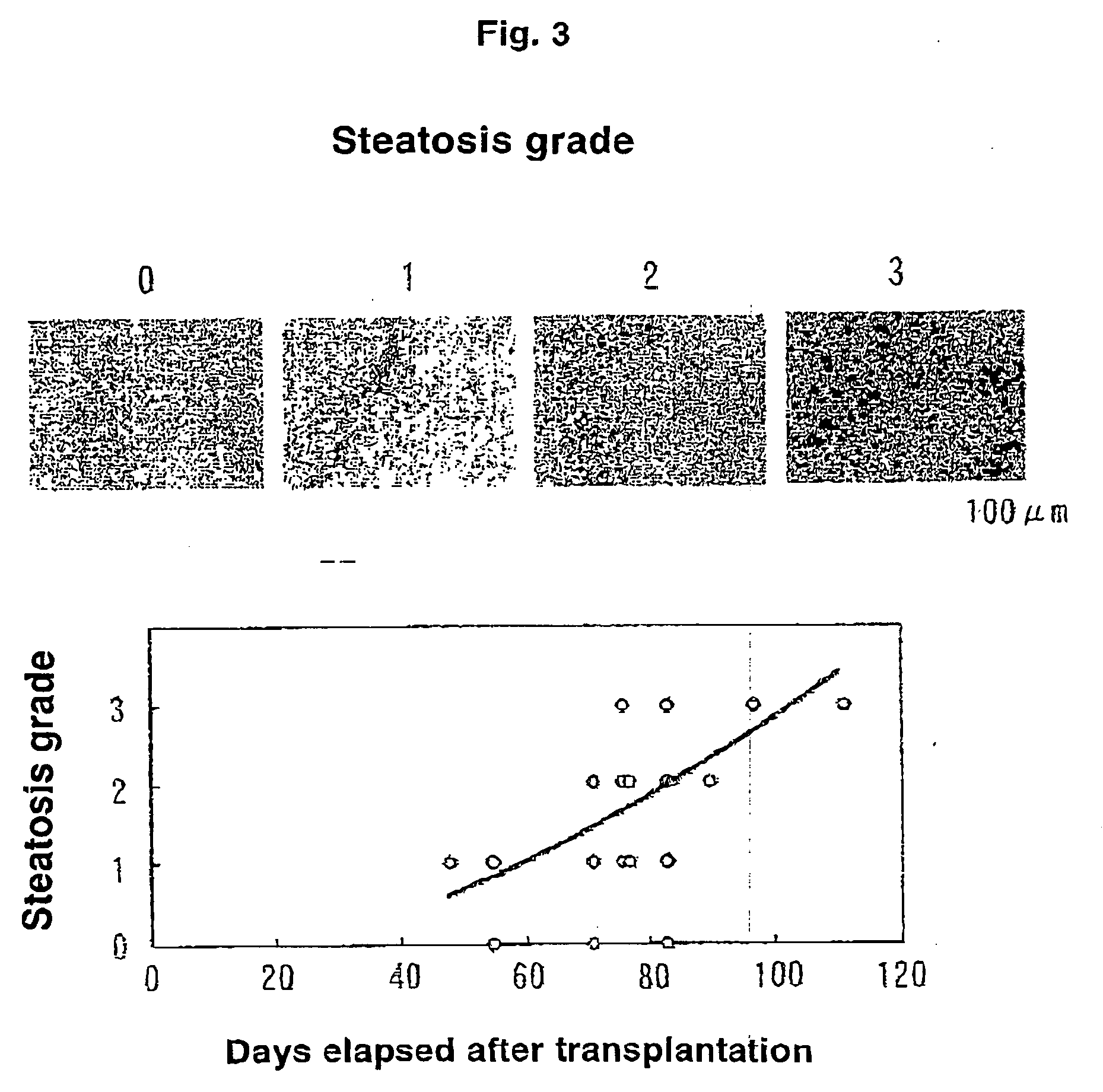Method Of Treating Mouse Carrying Human Hepatocytes
a mouse and human hepatocyte technology, applied in the field of human hepatocyte treatment, to achieve the effect of high replacement and improving fatty liver
- Summary
- Abstract
- Description
- Claims
- Application Information
AI Technical Summary
Benefits of technology
Problems solved by technology
Method used
Image
Examples
example 1
Administration of Human Growth Hormone to uPA / SCID Mice Transplanted with Adult Human Hepatocytes
1-1. Test Substance
[0041]In order to evaluate the growth potential of human hepatocyte chimeric mice, recombinant human growth hormone (Wako Pure Chemical Industries, Ltd.) was used.
1-2. Animals
[0042]As recipient animals, uPA / SCID mice which are mice having a property of immunodeficiency and hepatopathy were produced in Hiroshima Prefectural Institute of Industrial Science and Technology according to Patent document 1 and used. Cryopreserved hepatocytes of a 46-year-old male human (manufactured by In Vitro Technology Inc.) were thawed according to the literature (Tateno C. et al., Am. J. Pathol 2004 165: 901-912.4) and used.
1-3. Transplantation and Administration
[0043]Into eight uPA(+ / +) / SCID mice, 7.5×105 cells of human hepatocytes were transplanted through the spleen. On day 26 after transplantation, the mice were divided into a group with administration of human growth hormone and a g...
example 2
Short-Term Administration of Human Growth Hormone to uPA / SCID Mice Transplanted with Young Human Hepatocytes
1-1. Test Substance
[0047]In order to evaluate the growth potential of human hepatocyte chimeric mice, recombinant human growth hormone (Wako Pure Chemical Industries, Ltd.) was used.
1-2. Animals
[0048]As recipient animals, uPA(+ / +) / SCID mice which are mice having a property of liver damage and immunodeficiency were produced in Hiroshima Prefectural Institute of Industrial Science and Technology according to Patent document 1 and used. As donor hepatocytes, cryopreserved hepatocytes of a 6-year-old female child (manufactured by BD Gentest Inc.) or a 9-month-old male child (manufactured by In Vitro Technology Inc.) were thawed according to the literature (Tateno C. et al., Am. J. Pathol. 2004 165: 901-912.4) and used.
1-3 Transplantation and Administration
[0049]Into forty-one uPA(+ / +) / SCID mice, 7.5×105 cells of the donor hepatocytes of a 6-year-old female child were transplanted,...
PUM
| Property | Measurement | Unit |
|---|---|---|
| concentration | aaaaa | aaaaa |
| structure | aaaaa | aaaaa |
| concentration | aaaaa | aaaaa |
Abstract
Description
Claims
Application Information
 Login to View More
Login to View More - R&D
- Intellectual Property
- Life Sciences
- Materials
- Tech Scout
- Unparalleled Data Quality
- Higher Quality Content
- 60% Fewer Hallucinations
Browse by: Latest US Patents, China's latest patents, Technical Efficacy Thesaurus, Application Domain, Technology Topic, Popular Technical Reports.
© 2025 PatSnap. All rights reserved.Legal|Privacy policy|Modern Slavery Act Transparency Statement|Sitemap|About US| Contact US: help@patsnap.com



